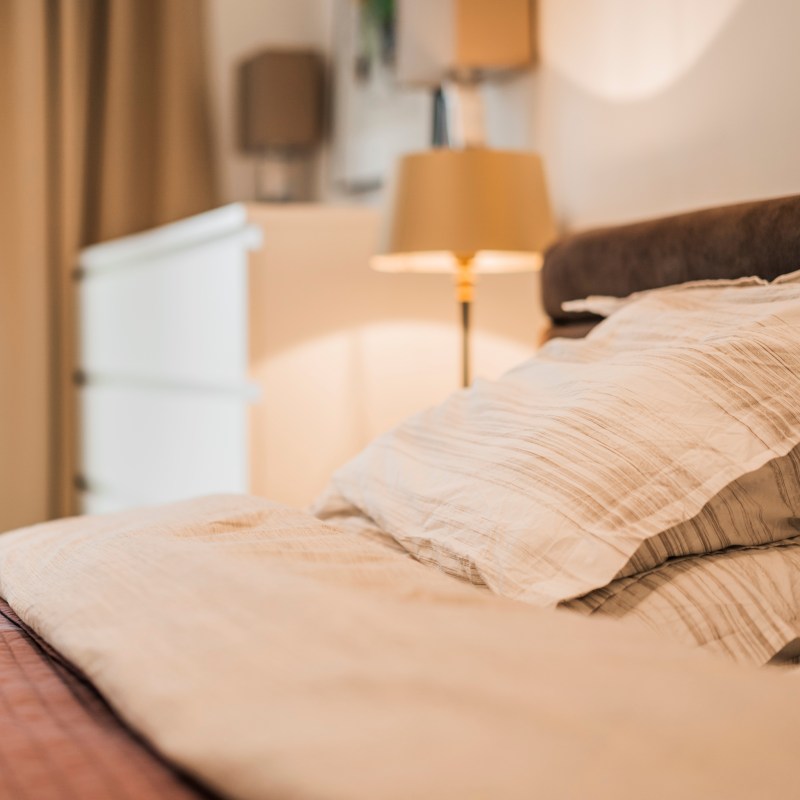
Before making available your home or apartment on Airbnb, you’ll want to be aware of some safety precautions and tips. There are several ways to go about listing your home, and it can be a great way to make some money on the side. How to do so in the safest way possible is detailed below.
We hope this list will provide some insight for hosts looking to indulge in the Airbnb experience.
Happy hosting!
1. Private Vs. Shared
When hosting through Airbnb, you’ll have the option to choose between offering private and shared accommodations for a room, multiple rooms or an entire home. This means that guests will either have the accommodation to themselves (private), or you’ll be sharing living spaces with visitors (shared).
In terms of safety, the host must determine which type of hosting option makes them feel more comfortable. If you feel safer and more at ease by being able to be in your home during your guest’s stay, advertise your home as a shared accommodation. If you’re not worried about guests being in your home by themselves, opt for offering private accommodations.
While it may seem obvious, note that offering your home or room(s) as shared accommodations will mean you can command less of a price. Privately sharing your home will inevitably ring in more coinage. It is up to the host to decide what makes them feel more comfortable in terms of safety, and how much they’re hoping to earn through hosting on Airbnb.
Click here for more information on pricing and availability.
2. Obtain Some Basic Information Beforehand
Make sure to interact smartly before hosting. Airbnb suggests that hosts pay and communicate only through Airbnb, and use Airbnb’s messaging system to get to know their guests. Anytime I have personally stayed at an Airbnb, I have been obligated to fill out a form explaining who I was, why I was visiting, and who I’d be with during my stay, etc. Requesting this basic information will provide you some background information on your guests.
Though there are many first-time users on Airbnb who don’t yet have reviews, many guests are returning visitors and have profiles with reviews from other hosts. Looking into a guest’s profile to see if they have any positive reviews is a surefire way to confirm a person is not only legitimate but will be respectable during their stay.
Airbnb also urges hosts to look for verified phone numbers, connected social networks, and references. If a potential guest is new to Airbnb and doesn’t have any of the previously mentioned profile credentials or verifications, don’t hesitate to ask them to provide some of these before accepting their request.
3. Personalize And Specify Your Listing
When creating your listing for Airbnb, personalize and specify as much as possible. Airbnb offers a myriad of specifications and personalization options for hosts to fill out for their accommodation.
In order to ensure safety, it’s imperative to fill out the House Rules, Home Safety Card, and House Manual, allowing guests to know what to expect during their stay.
The House Rules and House Manual allow hosts to specify anything and everything about their accommodation, from whether or not (and where) smoking is allowed, which areas of the house are public or private, and what your Wi-Fi password is, to your interaction with guests and offered amenities, such as a kitchen, parking, washer and dryer, heating, air conditioning, etc.
In the Home Safety tab of a listing, hosts should make sure to fill out any emergency phone numbers, locations of fire extinguishers and fire alarms, and emergency exit routes. Filling out the Home Safety tab ensures that guests know what to do, whom to call, and where to go in case of an emergency.
Hosts may also set requirements for their listing, such as providing an ID for verification, or adding a security deposit and cleaning fee. The more a host personalizes and sets requirements for their listing, the more likely they are to have an enjoyable and safe experience with Airbnb.
Click here to see how to share House Rules with guests.
4. Get Insurance
Airbnb offers a Host Protection Insurance program in order to minimize the risk of property theft or damage, or a third-party claim of bodily injury. The program provides primary liability coverage for up to $1 million per occurrence.
For more information about what is and what isn’t covered through the Host Protection Insurance program, click here.
5. Prepare For Disruptions
Ok, for this one, we’re not talking about rude house guests who want to party all night and leave huge messes (though this is a possibility). What we mean about preparing for disruptions is to acknowledge the fact that becoming a host for Airbnb will inevitably cause some life interruptions. Make sure all parties — spouses, significant others, children — are prepared for such possibilities.
As a host, you’ll have to be present for check-in and check-out, do all the cleaning, deal with neighbor complaints, insurance policies, etc. Make sure that before you host, you’re prepared for whatever issues might come your way when strangers are staying in your home. Being unprepared and unaware of the potential negative consequences or nuisances will result in an unenjoyable and negative experience as a host for Airbnb.
Being a host for Airbnb is an incredible way to meet new people from around the world, show off where you’re from, and make new friends. Don’t spoil this remarkable experience by being unprepared for the safety hazards!


